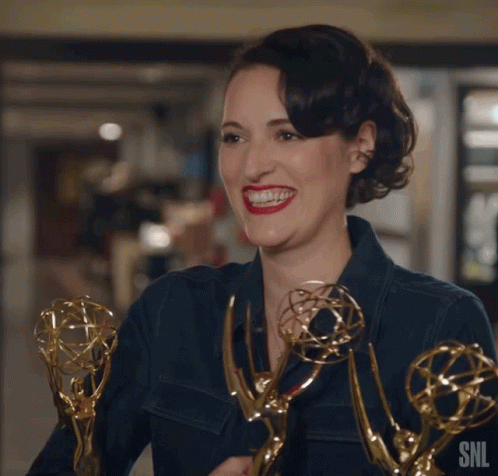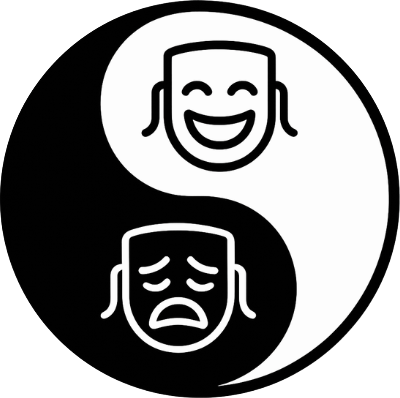An Agent Isn't Always the Answer
Controversial? Sure. True? You betcha.
We don't proclaim statements like these for the clickbait. Clickbait ain't our currency. Instead, the Dojo deals in truth. Truth for the sake of actor empowerment and well-being.
"Do I need an agent?" has almost ceased to be a question actors ask because the answer is assumed (and widely said) to be a unanimous "Obviously".
As a general life rule, asking questions is a healthy practice. Automatically buying into what's commonly accepted and expected is less so. Particularly regarding the path we choose to walk in life – in our case, the actor's path.
Adopting the herd mentality, in any context, will always seem more enticing. It's quick, it's easy, and it's clean-cut. Challenging the status quo, on the other hand, is laborious, hard, and painted in more shades of grey than we even knew existed. But in the words of Admiral Ackbar, "It's a trap!". Herd mentality always loses in the long run.
So, unsurprisingly, here's the real answer to "Do I need an agent?": it depends.
Backed by science; built for the stage and screen.
👊 Actors:
Get evidence-informed insights and strategies to support your performance and well-being. Join the Dojo e-newsletter tribe and make thriving your reality.
🧭 Drama schools & Production companies:
Bring pioneering, research-backed coaching into your classroom or rehearsal room. Let’s talk about supporting your actors to perform at their peak – and stay well in the process.
A room of doors
Imagine this: somewhere, in an alternate reality, you find yourself standing in a dark room. In this room, you are surrounded by locked doors – each emanating a unique glow.
On the other side of each door is a different manifestation of success. In this alternate reality, getting an agent is akin to being handed a single key.
The point here is this: getting an agent can unlock access to success. However, it's access only to a specific type of success. It's access only to one of those doors.
Now, it may be that the door an agent unlocks is the door you genuinely want to walk through. Fab. But it may be that it isn't.
Our first task, then, is simple. Simple, but not necessarily easy. We need to decide what door we actually want unlocked. We need to define our personal definition of success.
To agent
If our definition of success follows the "traditional" model (i.e. a constant stream of leading roles in major stage and screen productions), an agent will unlock the door we want opened.
Agents have hall passes to corridors where most "big" decision-makers and "big" projects loiter. These corridors are very hard to sneak into without an agent with us. Not impossible, but highly unlikely.
Remember, agents make money when their actors make money, so they have a vested interest in fast-tracking their clients to this A-Lister image of success. If their aim aligns with our aim, amazing. An agent is absolutely our key.
Not to agent
On the other hand, if our definition of success strays from the traditional model (e.g. creating our own work or company, living a broad and multi-faceted life life), an agent mightn't be our key.
There are two main reasons for this. The first: our creative passion projects won't be given the same weight as blockbuster gigs. An agent may let one or two slide, but certainly not a whole career's worth. Not until we hit Phoebe Waller-Bridge level and show that creative passion projects and blockbuster gigs aren't mutually exclusive.
It can be soul-crushing to have implied that our definition of success isn't the "right" one. It can also become sticky and confusing when we achieve the A-Lister image of success but not our own.
If our definition of success isn't the definition we know agents work with, leave rep until later down the line. Side-step the pain and frustration of speaking a different language.
The second reason an agent mightn't be our key is tied to the first. When we sign with representation, we hand over a slice of our freedom. We've seen subtle and extreme versions of this at play, but even in the best-case scenario, anything that can and will take you out of the game needs to be communicated – if not explicitly okay-ed.
Some of us don't want to have to flag every holiday, new Muggle Job, or pregnancy with someone else, and that's 100% valid. This is especially true for the multi-multi-hyphenates among us who – as well as not having the desire – simply don't have the time to bash out a memo with every pivot.
Again, the more our vision of success strays from the traditional standard, the less likely an agent will be our key. At least until we hit Waller-Bridge status.

To circle back to where we started, questioning "truths" before blindly accepting them is a wise practice – both as an actor and as a being. And as there are few objectively infallible truths, the real key is heeding what's true for us.
Love what you’re reading? Help us keep it flowing. Donations support the research, writing, and free sharing of evidence-informed tools for actor performance and well-being. Every dollar fuels our mission to make thriving a reality for actors everywhere 🔥
